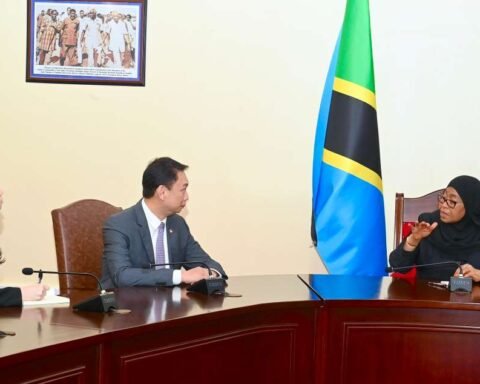Tanzania is preparing to launch a new department focused on managing funds for climate change, a decision made in response to the growing economic toll of unpredictable weather patterns.
This move comes after the heavy rains of the previous season caused widespread damage, leading the government to allocate over Sh1 trillion for infrastructure repairs, including roads, bridges, and crops lost to flooding.
The announcement was made on Wednesday, February 19, 2025, by Deputy Minister for Finance, Mr. Hamad Hassan Chande, during the fifth meeting of climate change finance directors from East African Community (EAC) member countries.
Mr. Chande shared that Tanzania has been a leader within the region in its efforts to address climate change, particularly in agriculture and health—sectors that now require significant financial support due to the challenges posed by changing weather.
“We are in the final stages of setting up a dedicated department to handle climate change finance,” Mr. Chande said. “We’re making great progress, and we’re excited to officially launch it soon.”
The Deputy Minister also talked about the far-reaching impact of climate change, stressing that the issue goes beyond the economy. The social and political implications of unpredictable weather are increasingly apparent, with communities across Tanzania feeling the effects of flooding, drought, and storms.
The Tanzanian government’s move to create this department is seen as a vital step in organizing the response to these challenges. Although the department is still in the final stages of establishment, its creation will help bring more structure and coordination to the way climate change finance is managed.
Also Read; Russia Strikes Ukraine’s Power Plant
Amid Winter
Tanzania has already committed a substantial amount of money to repair the damage caused by climate-related events, but the government hopes that this new department will take a more strategic approach to addressing these issues moving forward. This includes working with both international and local partners to find sustainable solutions.
Looking ahead, the department will also focus on building long-term resilience, such as strengthening early warning systems and promoting climate-smart agriculture. These efforts are expected to better prepare the country for future challenges.
Tanzania’s approach reflects a broader regional shift within the EAC to integrate climate change into national policies. As climate events become more frequent and severe, Tanzania’s initiative may serve as an example for other countries in the region.







